#Meredith Anne Pierce
Explore tagged Tumblr posts
Text
Books by Women
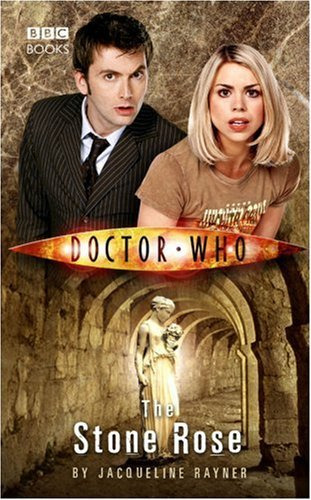
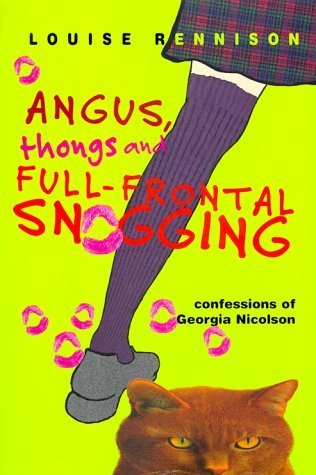



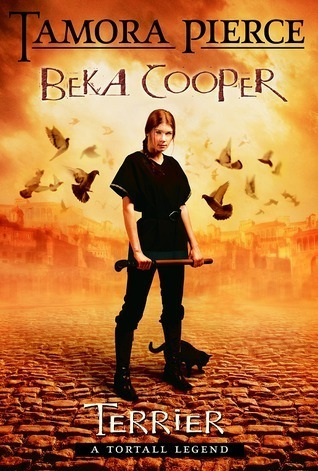
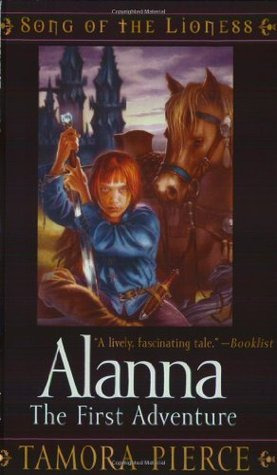
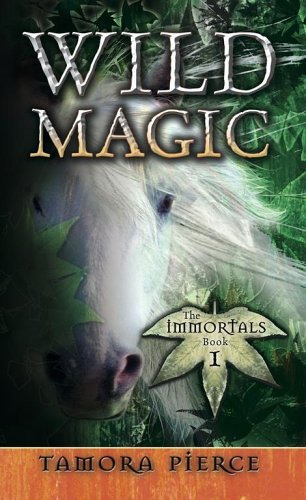
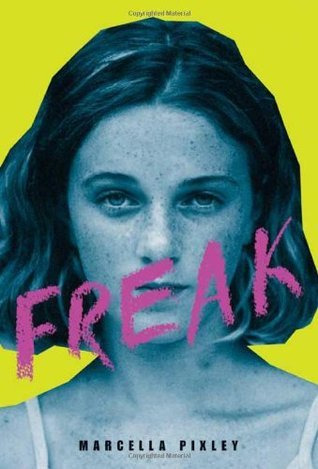


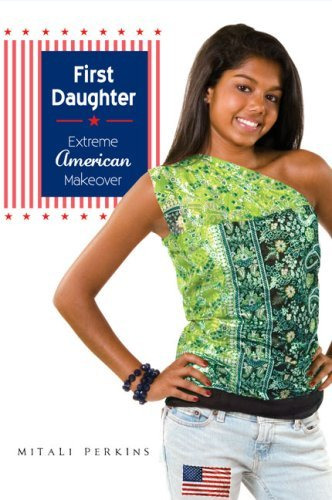

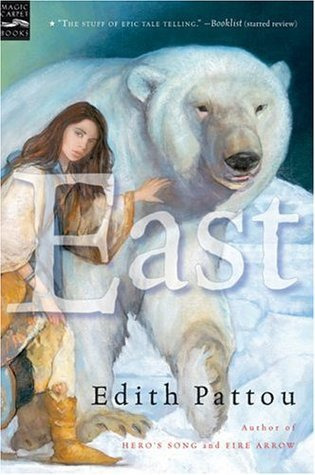
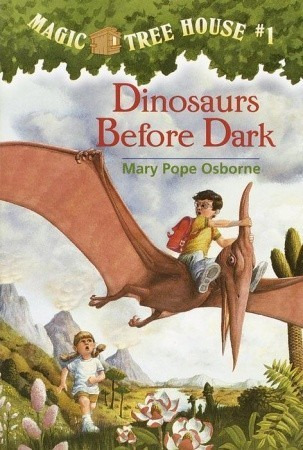


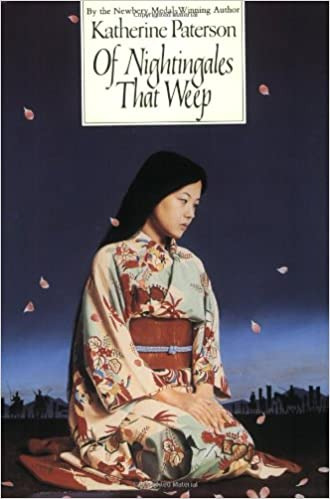
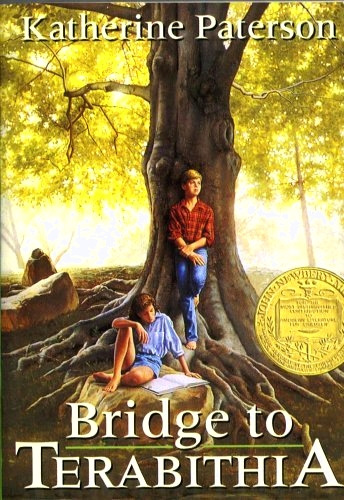
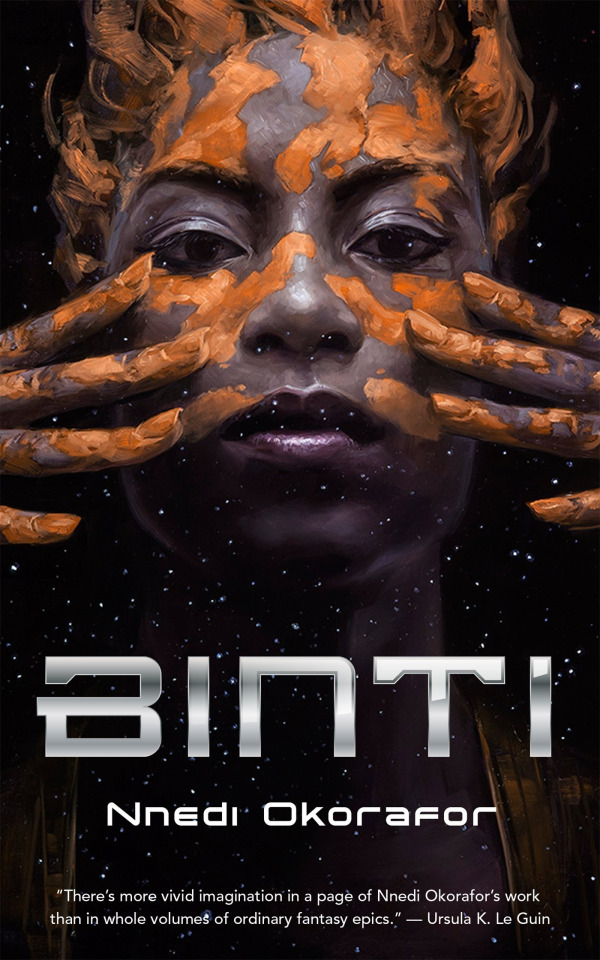
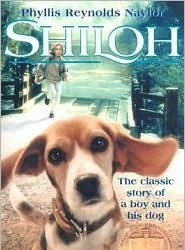
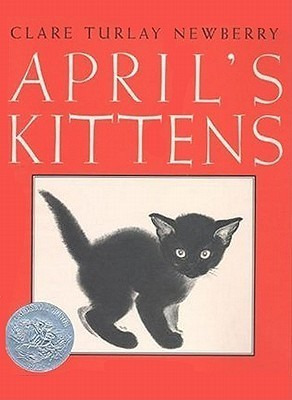
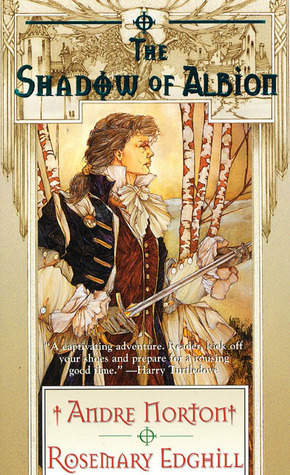
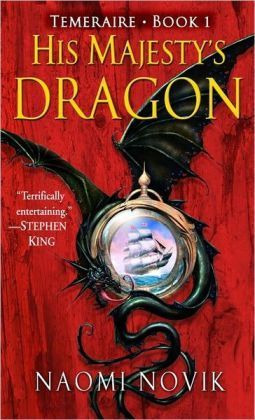
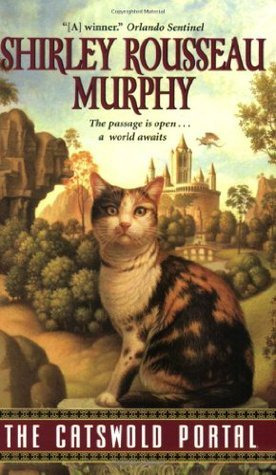
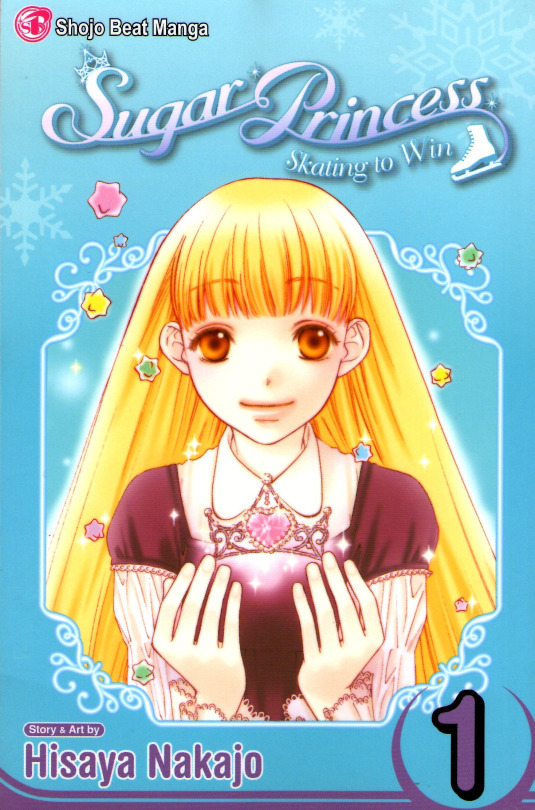
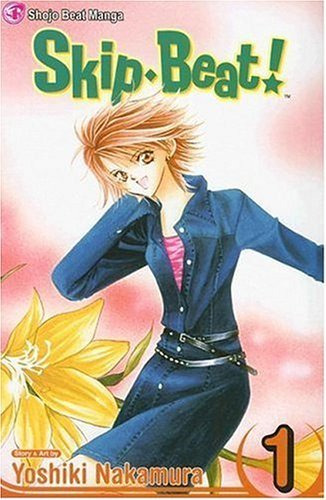
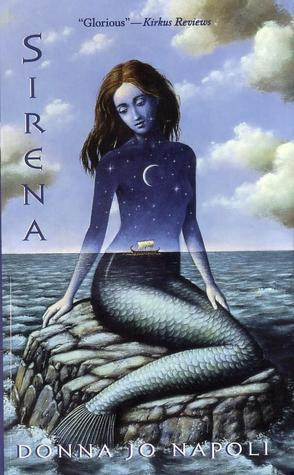

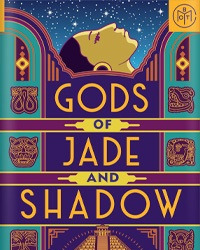
#Jacqueline Rayner#Louise Rennison#Sheri Reynolds#Anne Rice#Tamora Pierce#Marcella Pixley#Carol Plum-Ucci#Beatrix Potter#Mitali Perkins#Meredith Anne Pierce#Edith Pattou#mary pope osborne#Kaori Ozaki#Peggy Parish#Katherine Paterson#nnedi okorafor#Phyllis Reynolds Naylor#Clare Turlay Newberry#Andre Norton#Rosemary Edghill#Naomi Novik#Shirley Rousseau Murphy#hisaya nakajo#Yoshiki Nakamura#Donna Jo Napoli#Margaret Moore#silvia moreno garcia
0 notes
Text

Made a sketch of ‘Green Hannah’ from Treasure at the Heart of the Tanglewood by Meredith Ann Pierce (2001).
Such a lovely story, mixing a feel of woodland fairy tales with elements from a Greek myth, but still really original on its own. It’s a quick read but it lingers. 🌿🦊🦡🐦⬛
#treasure at the heart of the tanglewood#meredith ann pierce#fanart#book fanart#green hannah#fairy tales#mythology#this is such a lovely book#highly recommend#my art#my sketch#hand drawn#pencil sketch
3 notes
·
View notes
Text
Please tell me I'm not the only one who read these religiously growing up? I remember the exact place I first read the big fucking unicorn incest reveal. I was 13, I was reading in the bathtub and when it happened I almost dropped a library book in the water.
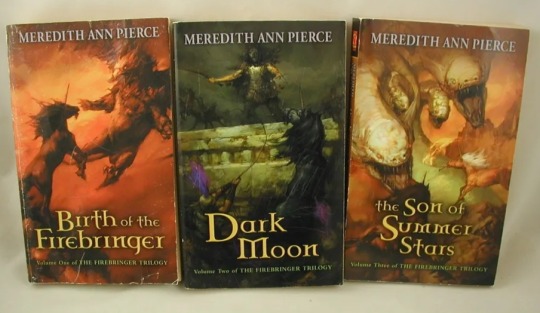
13 notes
·
View notes
Text

books cristina read in 2023: the woman who loved reindeer - meredith ann pierce
“Only the wild herds, the reindeer, ran southward over the Burning Plain in winter. No one knew why they went there, or how they survey the cold. But always they returned in spring, surging northward toward the warmer lands to calve.”
5 notes
·
View notes
Text
20 Book Challenge
I saw this challenge on a post by @theresebelivett. The idea is you pick 20 of your books to take with you to a desert island, but you can only pick one book per author and series. Here are two further guidelines I set myself: They have to be books I actually own, as if I really am gathering them up under my arms and heading to the island; and I'm defining "book" as a single volume -- so if I just so happen to have 100 novellas squashed between two covers, it still counts as one book.
We'll go alphabetically by author.
Charlotte Bronte: Jane Eyre. An old standby, a classic, I can jump into it at any point.
Daphne du Maurier: Rebecca. Have only read it once, but loved it and I suspect I'll get more from it each time.
Clare B Dunkle: The Hollow Kingdom. If I can only take one book from this excellent and unusual goblin series that captivated me in the mid-2000s, it'd better be the first one.
William Goldman: The Princess Bride. This book had an outsize influence on my own writing. I can quote a lot of it, but I wouldn't want to be without it.
Shannon Hale: Book of a Thousand Days. I love the warmth and humility of its heroine Dashti. Plus, Shannon Hale very kindly wrote a personal response to a fan letter I sent her years and years ago, so her work always has a special place in my heart.
Georgette Heyer: Cotillion. I don't actually own my favorite Georgette novel, but the funny, awkward, and ultimately romantic Cotillion is definitely not a pitiful second-stringer.
Eva Ibbotson: A Countess Below Stairs. Countess was my introduction to Eva's adult romances, and she is the past master of warm, hardworking heroines who should really be annoying because they're way too good to be true, but somehow you just end up falling in love with them.
Norton Juster: The Phantom Tollbooth. I first read this when I was like eight, and even for an adult, its quirky humor and zingy wordplay hold up, no problem.
Gaston Leroux: The Phantom of the Opera. Can't leave without Erik, nope, the French potboiler has got to come. Perhaps I will spend my time on the island writing the inevitable crossover fanfic, The Phantom of the Tollbooth.
CS Lewis: Till We Have Faces. Faces is my current answer for what my favorite book is, so I'm taking that, though it feels criminal to leave The Silver Chair behind.
LM Montgomery: The Blue Castle. As much as I love Anne and Emily, it came down to Blue Castle and A Tangled Web, and I'm a sucker for Valancy's romantic journey.
E Nesbit: Five Children and It. Probably the most classic Edwardian children's fantasy, though still a hard choice to make. Nesbit is another author who had a huge influence on me as a writer.
Robert C O'Brien: Mrs Frisby and the Rats of NIMH. A childhood book I'm really sentimental about. I should re-read it.
Meredith Ann Pierce: The Darkangel. The first in the archaic lunar vampire trilogy. This will always be frustrating, only having the first in the series, but if I can only read the first, maybe I'll forget about how angry the third novel left me.
Sherwood Smith: Crown Duel. At one time, this swords-and-manners fantasy duet was one of my absolute favorite fandoms, and clever me has both books in one volume, so I don't have to choose.
Anne Elisabeth Stengl: Starflower. My favorite of the Tales of Goldstone Wood series. We'll have to test whether I can actually get sick of Eanrin.
JRR Tolkien: The Lord of the Rings. I've never actually read it through as an adult and, look at that, I have a three-in-one volume. Cheating!
Vivian Vande Velde: Spellbound. I've read much of VVV's YA fantasy and liked a lot of it, but none more so than The Conjurer Princess and its fast-paced tale of revenge. The Spellbound edition includes the prequel and a bonus short story, so I'm good to go.
PG Wodehouse: The World of Mr Mulliner. There are some hilarious novels I'm leaving behind here, including all the Bertie Wooster stuff. But there are some absurdly fun Mulliner stories and this edition is like three hundred pages. That'll keep me happy for a long while on my island.
Jack Zipes (editor): Spells of Enchantment. This is an enormous compilation of western fairy tales. I've owned it since 2004 or so, and I've still never finished it. Now, on my island, I'll no longer have the excuse.
Tagging anyone else who feels like doing this!
#reading#charlotte bronte#jane eyre#daphne du maurier#rebecca#clare b dunkle#the hollow kingdom#william goldman#the princess bride#shannon hale#book of a thousand days#georgette heyer#cotillion#eva ibbotson#a countess below stairs#norton juster#the phantom tollbooth#gaston leroux#the phantom of the opera#cs lewis#till we have faces#lm montgomery#the blue castle#e nesbit#five children and it#robert c o'brien#mrs frisby and the rats of nimh#meredith ann pierce#the darkangel trilogy#sherwood smith
5 notes
·
View notes
Text
Realizing as I go that the vibes I would love to evoke are reminiscent of 80s fantasy. For movies I most readily think of The Last Unicorn, Labyrinth, Dark Crystal, Dragonheart, Willow, but I also read a lot of older fantasy as a small one. I have my grandmother to thank for that, as she introduced me to books such as The Chronicles of Prydian by Lloyd Alexander, Song of the Lioness by Tamora Pierce, the Merlin saga by T.A Barron (that's 90s, but I digress); I even remember a book about the Crusades, though I can't remember enough about it to find it.
It's probably nostalgia speaking, mostly, but I'd really love to add more older fantasy to my read list. There's just something about it.
#started thinking about this because I remembered The Darkangel Trilogy by Meredith Ann Pierce#and I want to reread that and pretty much every other book I've listed here too#I'm not really going anywhere concrete with this....just rambling#these really were the kinds of works that made me fall so deeply in love with fantasy#also this made me realize lloyd alexander was writing those books in the 60s oops#lamia muses
6 notes
·
View notes
Text
New book review!
Birth of the Firebringer by Meredith Ann Pierce
0 notes
Text
Top Femslash Ships Bracket: Seeding
As promised, we're back with a new bracket! However, we're doing things a little differently this time. Rather than taking the data for seeding directly from a ranked list, we want you guys to be a part of the seeding process!
> Here is the Femslash Bracket Seeding Survey! <
This survey contains a list of over 100 ships, pulled from centreoftheselights's AO3 ship stats for 2023 and 2024, and Tumblr's year in review, as well as a few submissions that are not on either list but are considered iconic or historically important. It asks two questions: which ships have you heard of, and which ships do you view positively? The final seeding for the bracket will be based on a ratio of these numbers, from which we will rank the top 96!
A few notes regarding this survey:
Please answer as honestly as you can! Yes, that does mean going through a long list of ships twice in order to check all the relevant boxes, but such is the price we pay for accurate data.
Please only submit the survey once! While we normally delight in voter fraud, artificially boosting your favorite ship in this survey will only skew the results with no benefit; in fact, it could potentially hurt your chances in the actual bracket!
Do, however, feel free to reblog this post so we get a larger sample size.
The form does require that you be logged into a Google account; however, we are not collecting email addresses, and responses will be fully anonymous.
As always, this poll is a celebration of fandom and fandom history; we're aware that there are certain issues with many of the listed pairings and sources, but they are a part of that history. Please do not take this as an endorsement, and refrain from harassment.
We will be collecting responses until December 22, at 11:59 pm EST.
Take the survey here!
And, if you'd like to review the ships before you click through, here's the full list below the cut (listed alphabetically by source)
The 100 - Clarke Griffin/Lexa
Adventure Time - Princess Bubblegum/Marceline
Aespa (Band) - Kim Minjeong | Winter/Yu Jimin | Karina
Agatha All Along (TV) - Agatha Harkness/Rio Vidal
Agent Carter (TV) - Peggy Carter/Angie Martinelli
Agents of SHIELD (TV) - Jemma Simmons/Skye | Daisy Johnson
The Amazing Digital Circus - Pomni/Ragatha
Amphibia - Anne Boonchuy/Sasha Waybright
Amphibia - Anne Boonchuy/Marcy Wu
Arcane: League of Legends - Caitlyn/Vi
Attack on Titan - Mikasa Ackerman/Annie Leonhart
Attack on Titan - Krista Lenz | Historia Reiss/Ymir
Avatar: The Last Airbender - Azula/Ty Lee
Avatar: Legend of Korra - Korra/Asami Sato
Buffy the Vampire Slayer - Faith Lehane/Buffy Summers
Buffy the Vampire Slayer - Tara Maclay/Willow Rosenberg
Carmilla (Web Series) - Laura Hollis/Carmilla Kearnstein
Carol (2015) - Carol Aird/Therese Belivet
Criminal Minds - Jennifer "JJ" Jareau/Emily Prentiss
Critical Role - Beauregard Lionett/Yasha
Critical Role - Laudna/Imogen Temult
DC's Legends of Tomorrow - Sara Lance/Ava Sharpe
DC Universe - Pamela Isley | Poison Ivy/Harleen Quinzel | Harley Quinn
The Devil Wears Prada - Miranda Priestly/Andrea Sachs
Doctor Who - Thirteenth Doctor/Yasmin Khan
Dungeon Meshi - Marcille Donato/Falin Touden
Frozen - Anna/Elsa
Game of Thrones - Sansa Stark/Margaery Tyrell
Genshin Impact - Beidou/Ningguang
Genshin Impact - Raiden Ei | Baal/Yae Miko
Ghostbusters (2016) - Erin Gilbert/Jillian Holtzmann
Glee - Rachel Berry/Quinn Fabray
Glee - Santana Lopez/Brittany S. Pierce
Grey's Anatomy - Meredith Grey/Addison Montgomery
Haikyuu!! - Shimizu Kiyoko/Yachi Hitoka
Harry Potter - Hermione Granger/Pansy Parkinson
Harry Potter - Luna Lovegood/Ginny Weasley
The Haunting of Bly Manor (TV) - Dani Clayton/Jamie Taylor
Hawkeye (TV 2021) - Yelena Belova/Kate Bishop
Hazbin Hotel - Charlie Magne | Morningstar/Vaggie
Holby City - Serena Campbell/Bernie Wolfe
Homestuck - Rose Lalonde/Kanaya Maryam
Homestuck - Terezi Pyrope/Vriska Serket
House of the Dragon (TV) - Alicent Hightower/Rhaenyra Targaryen
Jujutsu Kaisen - Kugisaki Nobara/Zenin Maki
Killing Eve - Eve Polastri/Villanelle
The Last of Us - Dina/Ellie
Legacies (TV 2018) - Hope Mikaelson/Josie Saltzman
Legacies (TV 2018) - Penelope Park/Josie Saltzman
Life is Strange - Rachel Amber/Chloe Price
Life is Strange - Maxine "Max" Caufield/Chloe Price
LIttle Witch Academia - Diana Cavendish/Atsuko "Akko" Kagari
The Locked Tomb - Gideon Nav/Harrowhark Nonagesimus
Marvel Cinematic Universe - Maria Hill/Natasha Romanov
Marvel Cinematic Universe - Wanda Maximoff/Natasha Romanov
Mass Effect Trilogy - Female Shepard/Liara T'Soni
Merlin (TV) - Gwen/Morgana
Miraculous Ladybug - Juleka Couffaine/Rose Lavillant
Motherland: Fort Salem (TV) - Raelle Collar/Scylla Ramshorn
My Hero Academia - Jirou Kyouka/Yaoyorozu Momo
My Hero Academia - Toga Himiko/Uraraka Ochako
Naruto - Haruno Sakura/Yamanaka Ino
NCIS: Hawai'i - Lucy Tara/Kate Whistler
The Old Guard (Movie 2020) - Andy | Andromache of Scythia/Quynh | Noriko
Once Upon a Time - Evil Queen | Regina Mills/Emma Swan
Orphan Black - Delphine Cormier/Cosima Niehaus
Overwatch - Fareeha "Pharah" Amari/Angela "Mercy" Ziegler
Overwatch - Lena "Tracer" Oxton/Widowmaker | Amelie Lacroix
The Owl House - Amity Blight/Luz Noceda
Person of Interest - Root | Samantha Groves/Sameen Shaw
Pitch Perfect (Movies) - Chloe Beale/Beca Mitchell
Pokemon - Hanako | Delia Ketchum/Musashi | Jessie
Power Rangers (2017) - Kimberly Hart/Trini
Project SEKAI - Akiyama Mizuki/Shinonome Ena
Project SEKAI - Azusawa Kohane/Shiraishi An
Puella Magi Madoka Magica - Akemi Homura/Kaname Madoka
Revolutionary Girl Utena - Himemiya Anthy/Tenjou Utena
Riverdale (TV 2017) - Cheryl Blossom/Toni Topaz
Rizzoli & Isles - Maura Isles/Jane Rizzoli
RWBY - Blake Belladonna/Yang Xiao Long
RWBY - Ruby Rose/Weiss Schnee
Sailor Moon - Kaiou Michiru | Sailor Neptune/Tenoh Haruka | Sailor Uranus
Shadowhunters (TV) - Clary Fray/Isabelle Lightwood
She-Ra and the Princesses of Power - Adora/Catra
Splatoon (Video Games) - Marina/Pearl
Star Trek: Voyager - Kathryn Janeway/Seven of Nine
Station 19 - Maya Bishop/Carina DeLuca
Steven Universe - Lapis Lazuli/Peridot
Steven Universe - Ruby/Sapphire
Stranger Things - Robin Buckley/Nancy Wheeler
Stranger Things - Eleven | Jane Hopper/Maxine "Max" Mayfield
Supergirl - Alex Danvers/Maggie Sawyer
Supergirl - Kara Danvers/Lena Luthor
Teen Wolf - Allison Argent/Lydia Martin
Undertale - Alphys/Undyne
Warehouse 13 - Myka Bering/Helena "H.G." Wells
Warrior Nun - Sister Beatrice/Ava Silva
Wednesday (2022) - Wednesday Addams/Enid Sinclair
Wicked - Schwartz/Holzman - Elphaba Thropp/Galinda Upland
The Wilds (TV 2020) - Shelby Goodkind/Toni Shalifoe
Women's Association Football | Soccer RPF - Tobin Heath/Christen Press
Wynonna Earp - Waverly Earp/Nicole Haught
Xena: Warrior Princess - Gabrielle/Xena
869 notes
·
View notes
Text
Books of 2024 (in no particular order)
Tagged by @tryingtimi here, thanks so much!
The “rules” were to list 9 books you’ve read and loved this year (buuuuuuut sorta. lol I started reading more again last year after a reading lull and also I got distracted by some, so Imma sprinkle in ones that I started and then got distracted from)









The Big Sleep by Raymond Chandler Adult hardboiled crime, 1939
Started this one last year because I got bit by the hardboild noir gumshoe whatever-it-is bug. So I decided to go to one of the (what my research said was) greats and work my way out that way. It did have a very interesting beginning setup, and that's about as far as I got before We Will Devour The Night was released and...then the crime was traded in for political backstabbing. Was a good start tho, and I'm going to come back for it. I actually did this year but I started A Rival Most Vial at the same time and it became A Problem. So help me, I'm hopeless lol
The Darkangel Trilogy by Meredith Anne Pierce YA, 1982, Fantasy, vampires and gargoyles and ghostly brides oh my!
Picked this one up after reading The Firebringer Trilogy and I really wanted to read more by Pierce. It was a pretty interesting read as far as I got, which was about...middle, I think. Application of the creatures was fun, and I'm pretty sure there was more yet to discover about the world that they're in. Can't wait to dive back in.
A City Without Birds by Alexandra Ding YA Dystopian Sci-fi, 2023
This one was a wild ride. A new discovery around every corner, horrible memories popping up for our poor protagonist, little chips hidden under the skin, and of course I love a good mentor that helps keep our young always-in-danger MC aware of the situation and doing his best to keep her out of danger and informed at the same time.
The Unschooled Wizard by Barbara Hambly High Fantasy, other worlds, magic and swords, 1987
This one I've had an on-off relationship with lol, but I am determined to finish it. Some day. I found it among my dad's things after he passed, and given everything I learned about Fantasy at the start was from him, it felt like a good bet I'd enjoy it too. Also I'm a little gremlin, lol. Good world building, evil wizards, mercenaries. It's got two books in one, and I finished the first one (The Ladies of Mandrigyn) a while ago. It's been start and stop with the second but I got far enough to know I'm going to be interested when I pick it back up again. Also one of those that I abandoned when a certain Star Princess came back around.
We Will Devour The Night by Camilla Andrew Fantasy, magic, politicking, and dicks erotica, 2024
Aahahaha, the book that lured me away from other books last year. Couldn't help it. Read the first book in 2023 and so it was a case of I couldn't wait to see what the second book had in store and I already knew some of the world from the first book, so in I went! Parallel plotlines, an expansion on the world and the magic, with enough story and relationships left for the next one.
Rhythm of War by Brandon Sanderson High Fantasy, lots of travel and creatures, 2022
One of the poor stories abandoned for something else. I think this one was chucked for The Spirit Well. But I was having a hard time with it anyway. I love Roshar so, so much but the book was so, so long. Got about halfway. I am going to go back. I can't not go back. The magic system, the world, the...Kaladin. Kaladiiiiiiiiiiiin. Anyway. Now that I'm Kaladin thinking of Kaladin I might get back to Kaladin sooner rather than later. Kaladin.
The Spirit Well by R. K. Ashwick Fantasy, adventure, espionage, bards doing wildly dangerous things, 2024
The lovely Bard and Spirit and Scholar that I scampered after once the book was released. The magic is so much fun and Aspen was worth abandoning the other books for. A bit less light-hearted than the first book, but every bit as fun. Also I did talk at the book a few times and screamed once. Or twice. Might have kicked me feet and giggled a little as well.
Daughter of the Dragon by Anmol Kahn Fantasy, Dragons, Magic, Evil. 2020
D R A G O N S. Good old-fashioned dragons. This one had adventure, taking back the kingdom, and evil generals trying to take over all the kingdoms. Was a very enjoyable ride! Also dragons.
Kith & Kin by Mariki Nijkamp Vox Machina Origin story, LitRPG, Dungeons and Dragons. 2022
I started this one after watching the show after I got into the show thanks to watching Critical Role's second campaign. Of course Vax is my fav and the series got me interested in the twins mostly, so when I heard they were starting a book series on Origins I decided to start with them :P Only got to the first few chapters before other books beckoned me tho. Will be going back for more once other books stop distracting me...or when I get tired of there being no new Vox Machina content lol
Tagging, no pressure!!
@tc-doherty @bloodlessheirbyjacques @aether-wasteland-s @nacricissa @theeccentricraven
@daisywords @faeriecinna @americanfemcel @emberlyric @theprissythumbelina
@crazyinspirationaldreams @vacantgodling @erieautumnskies
@talesofsorrowandofruin @theoracleofgiana
@at-thezenith @full-on-sam @lyutenw @librarysilverfish
@theunboundwriter @sleepyowlwrites @karkkidoeswriting @thesorcerersapprentice @ryns-ramblings
@charlesjosephwrites @aalinaaaaaa @mjjune @adie-dee
@concealeddarkness13 @wordswrittenbynight @winterandwords @toribookworm22
@serafyyn @gummybugg @carnocus @everthewip @sentfromwolves
@somethingclevermahogony @kaylinalexanderbooks @sodaliteskull
@flowerprosegarden @leahnardo-da-veggie @thegoddesswater @rhikasa @mysticstarlightduck and OPEN TAG!
7 notes
·
View notes
Text

Evening blue unicorn spotted with stars 💙. Calydor, from Son of Summer Stars by Meredith Ann Pierce, of the Firebringer Trilogy, always stuck out to me a lot, both as a character and by his description, so I really wanted to do a depiction of a unicorn with his coloration. Seriously, if you like unicorns at all, or xenofiction, and you haven't read the Firebringer Trilogy, do it, it's seriously my favorite book series ever.
Kin memories are weird. I don't have many memories of my unicorn kintype's life, mostly just impressions. Like, I have some other wild experiences, but my memories are thin on the ground. I think the kind of unicorn I am tend to come in various sky colors. Lots of blues, lots of sunsets, sunrises, greys and whites...but I'm not sure on that? It feels plausible, but also? I have no idea.
youtube
EDIT: Lawl. Just realized how similar the pose and vibe is to this one I drew in 2008!

9 notes
·
View notes
Text
The Dark Angel

2 notes
·
View notes
Text
Hero Alexander vs. The Real Alexander
Moving to the second half of a recent question:
And if I'm not wrong, you mention at one place that you don't "heroize" Alexander. That's interesting, since he's often worshiped as a mythical hero. Why did you move away from that?
As a writer (and a reader), I’ve always been intrigued by the challenge of humanizing the “inhuman” (which can also include the ridiculously talented).
When I fell in love with Tolkien as a girl, I wanted to know what it would be like to be an elf, to have magic, to live that long, etcetera. Maybe that’s also why I always preferred Marvel superheroes over DC. Their hallmark was to make the fantastic (mutants, etc.) more human.
Now, I love me some traditional mythopoetic fantasy, but I’m no good at producing it myself. What is mythopoetic style? Peter Beagle, Patricia McKillip, Nancy Springer, C.J. Cherryh’s sidhe novels, my friend Meredith Ann Pierce … and of course Tolkien himself, where magic is real and magical creatures are…well, magical. Inhuman. Elves … not hobbits. Like a fairy tale…a myth (hence “mythopoetic”).
Anyway, I love reading that, but can’t write it to save my soul. When I write epic/historical fantasy (and I do see SFF as my home genre), it’s closer to anthro SF than to any mythopoetic style. My current MIP (monster-in-progress) is a 6-book series set on a secondary world where two branches of humanity survived, one of which, the Aphê, have super-convenient prehensile tails. 😊 The character journey for one of the protags across the first three novels is to recognize the Aphê as human and fallible rather than as a “noble savage” wise people. (Yes, questions of “What does it mean to be ‘civilized’?” are among the series themes.)
When it comes to historical fiction, I take the same tack. Alexander is interesting to me because he was a real person who accomplished extraordinary things.* What might he have been like in real life?
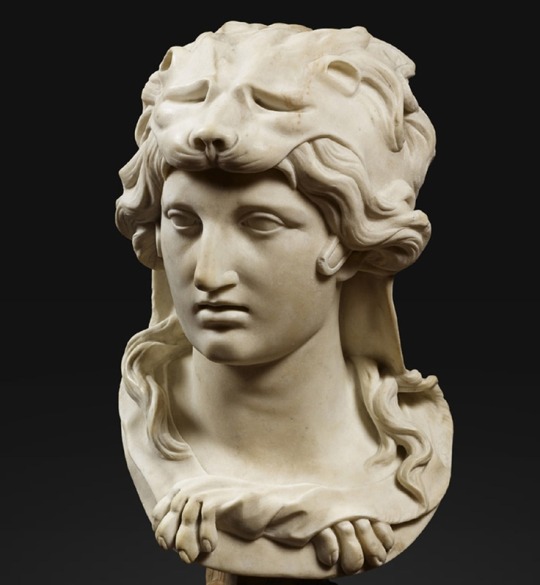
Making him too perfect—good at everything, no/few mistakes (just misunderstood), always honorable, etc., bores me. That’s the Alexander of his own marketing campaign. (laugh) It was adopted and refined by some later historians such as Arrian, and Plutarch in his rhetorical pieces (less in the Life but still there). That’s why I’m not a huge fan of Renault’s Alexander, and generally prefer her other Greek novels. Manfredi and (sorta) Pressfield do the same. Tarr and Graham also keep him deliberately at a distance to allow him to remain heroized, but it bothers me less because he’s at a distance. (Btw, I do not dislike Renault's ATG novels; they're just not among my favorites, either on Alexander, or of hers.)
Yet I’m not a fan of the other approach, either: to “humanize” him by taking him down a notch—making him NOT all that, just lucky (Lucian, and Nick Nicastro). Or by upending the heroic narrative altogether and turning him into a megalomaniacal “wicked tyrant” ala Pompeius Trogus/Justin or Seneca (and Chris Cameron).
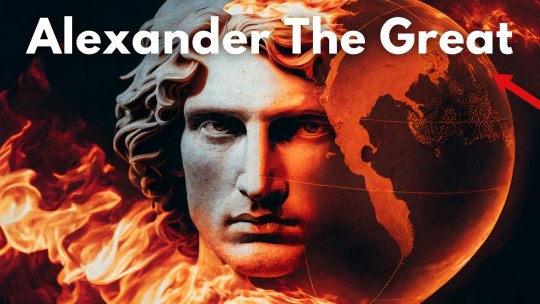
I want something (and someone) more relatable, even while letting him remain truly astonishing. To humanize the “inhuman.” I realize that’s a challenge as, the moment we do humanize him, it removes him from the realm of the hero, which in turn makes it harder to allow him to be “all that.” For some, any fault is “too much”—the proverbial clay feet—because they’re desperate to have an idol, a hero…not a person. So the haters come out when, for instance, Simone Biles pulled out of the Olympics for mental health and the Twisties. How dare she!
I’m interested in the person. Even if Alexander wanted to be Herakles Take II, he wasn’t inhuman (divine). He was just a guy, and for me, the fact he was “just a guy,” yet still accomplished all those extraordinary things, is the most remarkable part.
I’ll conclude with what I wrote at the end of the author’s note in the back of Dancing with the Lion: Rise (also available on the website):
In the end, whatever approach one takes to Alexander, whatever theories one subscribes to, more or less hostile to the conqueror, we are left with the man himself in all his complexity and contradiction. The phenomenon called “Alexander the Great” has evoked vastly different interpretations from his era to ours. It’s tempting to seek internal consistency for his behavior, or to force it when it can’t be found. Yet no one is consistent. Even more, history itself is distorted by those recording it in order to serve their unique political narratives, whether then or now. Conflicting politics create competing narratives, and histories of Alexander were (and are) especially prone to such distortions. That, in turn, brings us back to where we began: history (like historical fiction) is about who we are now, and what it’s possible for us to become. So Alexander was neither demon nor god, whatever he wanted to believe about himself. He was a man, capable of cruelty and sympathy, brilliance and blindness, paranoia and an open-handed generosity. As remarkable as he was, he was human. And that's what makes him interesting.
--------------------
* That some of these extraordinary things would be—and should be—reviled by modern standards is part of the uncomfortable contradiction, and legacy, of the ancient world. This is something I also try to depict in the novel. So there is never a “simple win” in a battle. There’s something ugly shown in or as a result of every single one. On purpose. Battle is, and should be, deeply disturbing.
#asks#Alexander the Great#Heroizing Alexander the Great#Heroic Alexander#Megalomaniacal Alexander the Great#tyrannical Alexander the Great#historical fiction#Dancing with the Lion#ancient Greece#ancient Macedonia#Classics
23 notes
·
View notes
Note
Questions for friendsssss!
1) What's your favorite Ghibli movie?
2) What was your favorite childhood book series?
3) What is your dream pet?
4) What's your #1 bucket list travel destination?
5) Where would you rather spend a week - cabin in the woods or beach house?
aww, thanks, friend!
favorite ghibli movie - princess mononoke is probably the better movie, but howl's moving castle is one of my peak Comfort Movies™. i also think about the ending of castle in the sky on a regular basis.
favorite childhood book series - oh i loved garth nix's the seventh tower series (i can see them on my bookshelf from where i'm sitting right now), kara dalkey's water trilogy, meredith ann pierce's darkangel trilogy, animorphs, and lloyd alexander's chronicles of prydain.
dream pet - the family cat (named bunny) is the light of our lives. we adopted him with another cat he befriended at the shelter (named pony) who passed away a handful of years ago and i still miss him tons--he was my buddy who would curl up companionably with me even when i was watching, like, loud-ass horror movies. i also love birds dearly but i know my life wouldn't really suit having one (plus, you know, the cat).
bucket list travel destination - i have a bachelor's degree in japanese and still have never been to japan, what's up with that. other places i'd like to see: ireland, romania, bosnia, czech republic, poland.
cabin in the woods or beach house - beach house. [cries in landlocked state]
3 notes
·
View notes
Text


[cis woman and she/her] Welcome to Aurora Bay, [MELODY LEWIS]! I couldn’t help but notice you look an awful lot like [MEGHANN FAHY]. You must be the [THIRTY ONE] year old [FIGURE SKATING COACH AT COOLDOWN ICE RINK]. Word is you’re [DISCIPLINED] but can also be a bit [OBSESSIVE] and your favorite song is [NO PLAN BY HOZIER]. I also heard you’ll be staying in [FISHER'S COVE].
INFORMATION:
fullname. melody louise lewis
nicknames. mel.
gender. cis woman
pronouns. she / her
d.o.b. july 4th, 1993 | ( 31 years old )
astrology. cancer ☀ capricorn ☾ libra ↑
birth place. seattle, washington.
hometown. seattle, washington.
current residence. aurora bay, california. ( @aurorabayaesthetic )
occupation. soon-to-be figure skating coach at cooldown ice rink.
religion. christian.
tattoos. none.
piercings. earlobes.
marital status. single.
sexual preference. bisexual.
family. nicole lewis ( mother ), lawson lewis ( father ), meredith lewis-young ( older sister ), lemie lewis ( cousin ), lucky lewis ( cousin ), lorelai lewis ( cousin ).
children. none.
CHARACTER INSPO:
anastasia allen ( icebreaker ), lexie howard ( euphoria ), isabel "belly" conklin ( the summer i turned pretty ), odette ( swan princess ) dawn summers ( buffy the vampire slayer ).
PERSONALITY:
+ disciplined, confident, kind. - obsessive, overbearing, self-punishing.
BIOGRAPHY:
From the minute Melody's cries could be heard down the halls of St. Annes Hospital, she has felt a step behind the rest of the world. She wasn't ever the smartest, the funniest or the prettiest - no one really saw her compared to her sister. Meredith was one of those people that others flocked to. While Melody felt like she was forever in her sister's shadow, trailing behind or playing catch up. Her parents never outright said that Meredith was there favorite, but everyone knew. She was the golden child, while Melody was always second fiddle.
The only time she ever felt she could be different was when she'd spend her summers in Aurora Bay. Every June, the Lewis's would drive down from Washington to California to spend the summer with their extended family. Under the hot summer sun, Melody felt confident and she enjoyed spending as much time with her cousins as possible. Maybe it was because Meredith always preferred to go to camp with her friends than spend the summer with her family, but it was the best part of the year.
Still shy and introverted as a young child back in the suburbs of Bellevue, Seattle - Melody remembers the exact moment she knew what she wanted to do with her life. Sneaking down into her father's den late at night to watch the 1998 Winter Olympics held in Japan, she watched as Tara Lipinski took home gold for Team USA. Watching the sixteen year old move with such strength and beauty, the crowds roaring cheers were enough to affirm that this is what she needed. Melody immediately asked her parents the next morning for ice-skating lessons.
At the age of five, Melody first set foot on the ice. By the time she turned seven, she was skating well beyond her years. A natural talent, they called her. And finally, Melody had something that her parents could be proud of. The pressure of that, however, drove to her push herself beyond her limits time and time again. As she continued excelling, her coach decided to put her into pairs skating and this was when she was first paired with Sean Ruthven.
Four years older than Mel and a far more experienced skater, the two had an instant connection. They were both determined to succeed which pushed them to train longer and harder than anyone else at their rink, resulting in them both invited to move to the Kraken Skating Academy to skate full-time. As they slowly started climbing the ranks of each competition until they won for the first time. The taste of victory was addictive, it only made Melody want to succeed more.
Every four years, they'd pray and hope that they could make it to the Olympic team, that they could represent their country and take home gold. But the closest they ever got was as third alternates for the 2022 Winter Olympics USA team. While it was a momentous achievement, it wasn't their dream to sit on the sidelines. This only made Mel want to work harder, try again for 2026 but Sean seemed disconnected, out of sorts.
And finally, after his twenty-sixth year of skating, Sean revealed to Melody that he was planning on retiring. She tried her hardest to take it well, but it destroyed her. Mel continued skating with different partners but nothing ever felt the same as when she skated with Sean. She announced her own retirement just two years later at the age of 30.
It has taken some time for Mel to decide what she wants to do now that she knows she'll never achieve her dream; she's never had much of a life outside of skating since she was a little girl. But after being invited to be bridesmaid at her cousin Lemie's wedding, Mel decided to move to Aurora Bay, a place that held such nostalgia for her. In her retirement, she has decided to start coaching figure skating at the local rink. As they say, those who can't do, teach.
POSSIBLE CONNECTIONS:
coming soon!
CURRENT CONNECTIONS:
cousin to @lemielewis, @luckylewis and @lorelailewis
3 notes
·
View notes
Text
So to atone for accidentally reblogging a TERF post talking about female authors, I would like to sincerely and unironically make a post recommending female authors. Let's all add our faves:
KA Applegate
Amelia Atwater-Rhodes
Xiran Jay Zhao
Meredith Ann Pierce
Gillian Flynn
@onbearfeet
@great-art-and-a-purple-tongue
@gracekitty
9 notes
·
View notes
Text
Happy National Unicorn Day (April 9th)

Equoid by Charles Stross You have likely guessed, but this story is very much a horror novel. Some say it was a bit too much for them...
Acorna by Anne McCaffrey Anne McCaffrey is a pretty solid writer. I am pretty comfortable picking up any of her books and knowing I will likely enjoy it.
Birth of The Firebringer by Meredith Ann Pierce This is the story of the prince of unicorns. He goes on an initiation test with other warrior unicorns.
The Natural History of Unicorns by Chris Lavers This will be the only non-fiction book today. It goes through history and look at were unicorns were mentioned and how they were described.
Into the Land of Unicorns by Bruce Coville This one sounds like a fun, light-hearted adventure novel.
The Unicorn Sonata by Peter S. Beagle This story is about music and unicorns. What else needs to be said?
#Unicorns#National Unicorn Day#Bookblr#Book community#books#Fantasy books#books and reading#book recommendations
2 notes
·
View notes